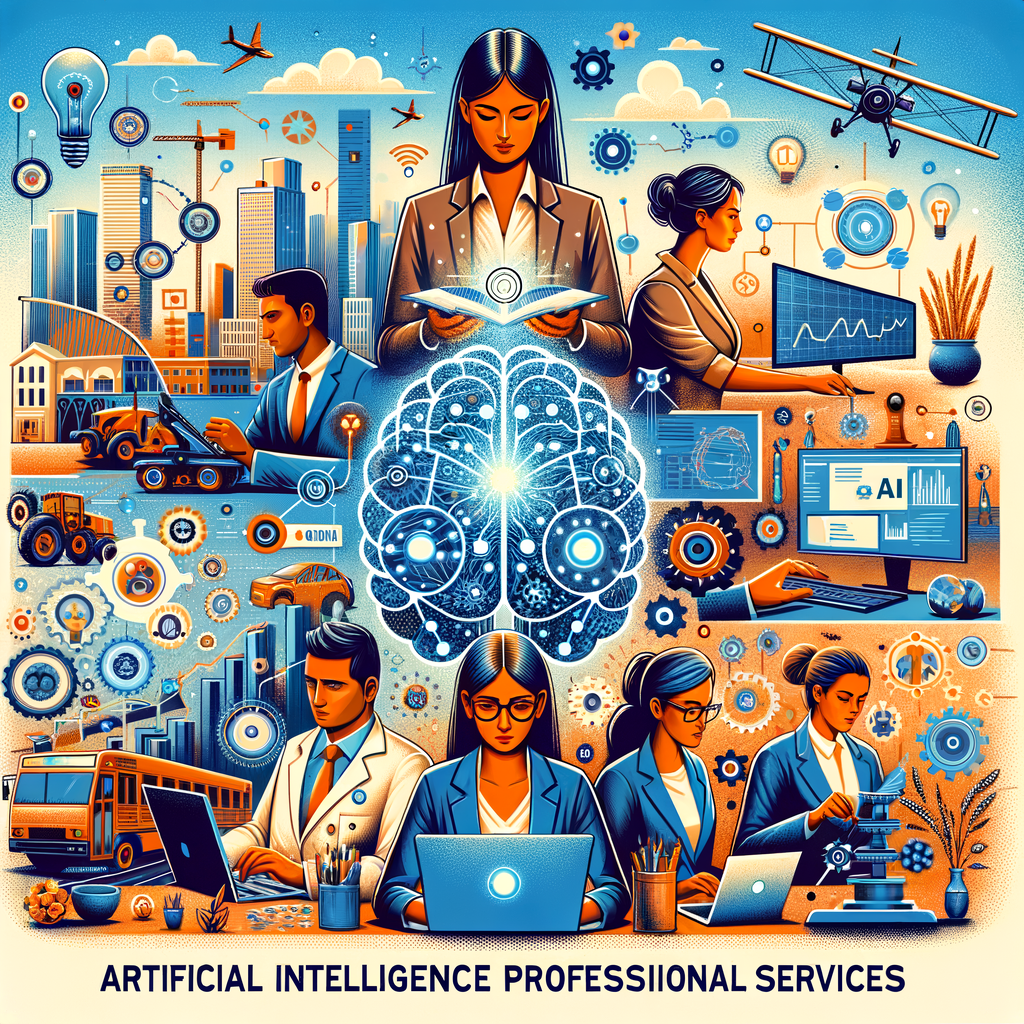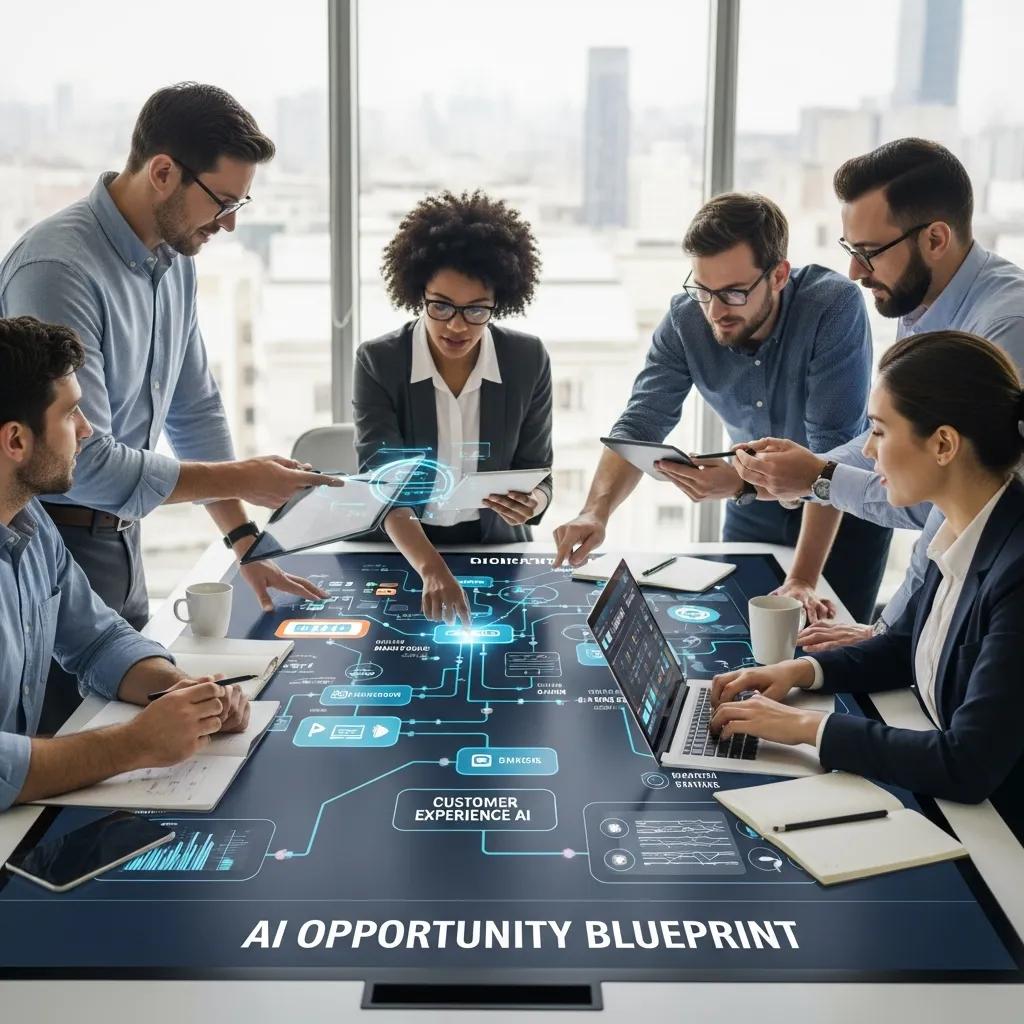Artificial intelligence is revolutionizing the professional services landscape, transforming how firms operate and deliver value to clients. As businesses grapple with complex challenges in an increasingly digital world, artificial intelligence professional services have emerged as a critical resource for driving innovation, efficiency, and competitive advantage. The rise of AI in professional services isn’t just a trend – it’s a fundamental shift in how knowledge work is approached and executed. From law firms to management consultancies, accounting practices to marketing agencies, AI is reshaping traditional business models and creating new opportunities for growth. But what exactly are artificial intelligence professional services, and how are they changing the game for service-centric organizations? Let’s dive into the transformative impact of AI on professional services and explore how firms can harness its power to thrive in the digital age.
The Rise of AI in Professional Services
Artificial intelligence has come a long way since its early days in the 1960s. Today, AI is no longer just a futuristic concept – it’s a practical reality that’s reshaping industries across the board. In the realm of professional services, AI is proving to be a game-changer, offering unprecedented capabilities to enhance decision-making, automate routine tasks, and deliver more value to clients.Defining Artificial Intelligence Professional Services
Artificial intelligence professional services encompass a wide range of AI-powered solutions and consulting offerings designed to help businesses leverage AI technologies effectively. These services can include:- AI strategy development and implementation
- Machine learning model creation and deployment
- Natural language processing solutions
- Predictive analytics and data modeling
- AI-driven process automation
- AI ethics and governance consulting
The Impact on Traditional Service Models
Just as robots revolutionized manufacturing processes in previous decades, AI is now transforming knowledge-based work in professional services. This shift is challenging traditional service models and forcing firms to rethink how they deliver value to clients. For example, in the legal industry, AI-powered document review tools can analyze thousands of pages in a fraction of the time it would take a human lawyer. This doesn’t mean lawyers are becoming obsolete – rather, it allows them to focus on higher-value tasks that require human judgment and creativity.Key Areas Where AI is Transforming Professional Services
Artificial intelligence professional services are making waves across various sectors. Let’s explore some of the key areas where AI is having the most significant impact:1. Management Consulting
AI is enhancing the capabilities of management consultants, allowing them to provide more data-driven insights and recommendations. Machine learning algorithms can analyze vast amounts of data to identify patterns and trends that might be invisible to the human eye, leading to more accurate forecasting and strategic planning.2. Legal Services
In the legal field, AI is streamlining document review, contract analysis, and legal research. Natural language processing technologies can quickly sift through millions of legal documents to find relevant case law and precedents, saving lawyers countless hours of manual research.3. Accounting and Finance
AI-powered tools are automating many routine accounting tasks, from bookkeeping to auditing. This not only improves accuracy but also frees up accountants to focus on more strategic financial planning and advisory services.4. Marketing and Advertising
In the world of marketing, AI is revolutionizing customer segmentation, personalization, and campaign optimization. Machine learning algorithms can analyze consumer behavior patterns to predict future trends and tailor marketing messages for maximum impact.The Benefits of AI in Professional Services
The adoption of artificial intelligence professional services offers numerous benefits for both service providers and their clients:Enhanced Efficiency and Productivity
By automating routine tasks and streamlining workflows, AI allows professionals to work more efficiently and focus on high-value activities. This increased productivity can lead to faster project completion times and improved client satisfaction.Improved Accuracy and Quality
AI systems can process vast amounts of data with a level of accuracy that’s difficult for humans to match. This reduces the risk of errors and improves the overall quality of work delivered to clients.Data-Driven Insights
AI’s ability to analyze complex data sets and identify patterns enables professionals to provide more insightful recommendations and make better-informed decisions.Cost Savings
While the initial investment in AI technologies can be significant, the long-term cost savings can be substantial. By automating routine tasks and improving efficiency, firms can reduce labor costs and allocate resources more effectively.Challenges and Considerations
Despite the many benefits, the adoption of artificial intelligence professional services also comes with its share of challenges:Ethical Concerns
As AI systems become more sophisticated, questions of ethics and accountability arise. Who’s responsible if an AI-powered system makes a mistake? How can we ensure AI is used fairly and without bias?Data Privacy and Security
AI systems rely on vast amounts of data, which raises concerns about data privacy and security. Firms must ensure they have robust measures in place to protect sensitive client information.Skills Gap
The rapid advancement of AI technologies has created a skills gap in many professional services firms. There’s a growing need for professionals who can bridge the gap between technical AI expertise and business acumen.Resistance to Change
As with any significant technological shift, there may be resistance from employees who fear job displacement or are uncomfortable with new ways of working.Preparing for the AI-Driven Future
To stay competitive in the age of AI, professional services firms need to take proactive steps:Invest in AI Education and Training
Firms should prioritize AI education and training for their employees. This doesn’t mean everyone needs to become a data scientist, but having a basic understanding of AI concepts and applications is crucial.Develop a Clear AI Strategy
Rather than adopting AI technologies in a piecemeal fashion, firms should develop a comprehensive AI strategy aligned with their overall business goals.Foster a Culture of Innovation
Embracing AI requires a cultural shift. Firms should foster an environment that encourages experimentation and continuous learning.Partner with AI Experts
For many firms, partnering with specialized AI consulting services like Alpha Apex Group can be an effective way to accelerate AI adoption and implementation.Case Study: AI in Action
To illustrate the transformative power of artificial intelligence professional services, let’s look at a real-world example: A leading management consulting firm partnered with an AI services provider to develop a predictive analytics tool for a retail client. The tool analyzed historical sales data, social media trends, and economic indicators to forecast demand for specific product categories. The results were impressive:- 20% improvement in inventory management efficiency
- 15% reduction in stockouts
- 10% increase in overall sales






